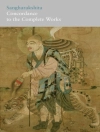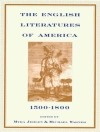Moby-Dick is an 1851 novel by Herman Melville. The story tells the adventures of the wandering sailor Ishmael and his voyage on the whaling ship Pequod, commanded by Captain Ahab. Ishmael soon learns that Ahab seeks one specific whale, Moby-Dick, a white whale of tremendous size and ferocity. Comparatively few whaling ships know of Moby-Dick, and fewer yet have encountered him. In a previous encounter, the whale destroyed Ahab’s boat and bit off his leg. Ahab intends to exact revenge.
The novel was a commercial failure and out of print at the time of the author’s death in 1891, but during the 20th century its reputation as a Great American Novel was established. The product of a year and a half of writing, the book draws on Melville’s experience at sea, on his reading in whaling literature, and on literary inspirations such as Shakespeare and the Bible. The detailed and realistic descriptions of whale hunting and of extracting whale oil, as well as life aboard ship among a culturally diverse crew, are mixed with exploration of class and social status, good and evil, and the existence of God. In addition to narrative prose, Melville uses styles and literary devices ranging from songs, poetry, and catalogs to Shakespearean stage directions, soliloquies, and asides.
ABOUT THE AUTHOR:
Herman Melville was an American novelist, short story writer, essayist, and poet. His first two books gained much attention, though they were not bestsellers, and his popularity declined precipitously only a few years later. By the time of his death he had been almost completely forgotten, but his longest novel, Moby-Dick — largely considered a failure during his lifetime, and most responsible for Melville’s fall from favor with the reading public — was rediscovered in the 20th century as one of the chief literary masterpieces of both American and world literature.
In spite of his reputation for writing stories filled with adventure, Herman Melville’s younger years were not terribly exciting. He was born into a rather wealthy family, but his father eventually went bankrupt and then died, leaving Melville as the head of the family. Melville ended up quitting school and worked to support his family for seven years. After all those years of hard work, Melville began seeking adventure in his early twenties and he decided to join a whaling expedition.
After a couple of years out at sea, Melville returned to America and began writing about his voyage, including ‘Typee: A Peep at Polynesian Life’ and ‘Omoo’, both about his time in Polynesia. In Typee, Melville elaborated on his experience with the cannibalistic tribe of the Typee and tells the story of a great love affair with a native girl named Fayaway.
In the sequel, Omoo, the narrator goes off on a whaling trip on its way to Tahiti. There’s a mutiny, the crew is captured and the narrator explores the Tahiti culture. Both novels were highly successful as Americans embraced his tales of adventure. At this point Melville had achieved quite a bit of fame and a promising career, as readers were anxious to hear more.
While everyone else loved his stories, Melville himself grew tired of the same old stuff. He was inspired by Nathaniel Hawthorne’s ‘The Scarlet Letter’ and began writing his famous novel, ‘Moby Dick’. Sadly, people weren’t too interested, and when he died in 1891 at the age of 72, no one really knew who he was. As Ralph Waldo Emerson would say, ‘To be great is to be misunderstood.’
And thankfully, a few decades after Herman Melville’s death, people began to revisit his work and decided that he had been quite misunderstood during his lifetime. Ever since, Melville has been known as one of the great writers of his time, and maybe even of all time.












